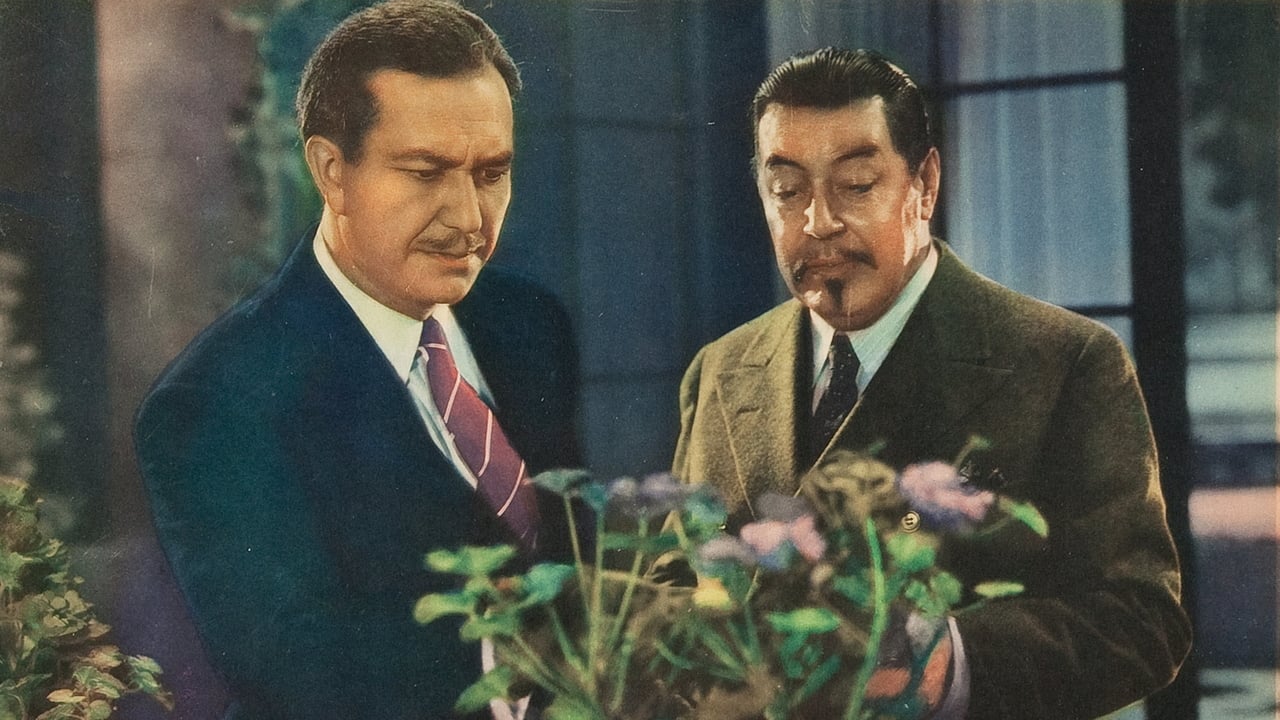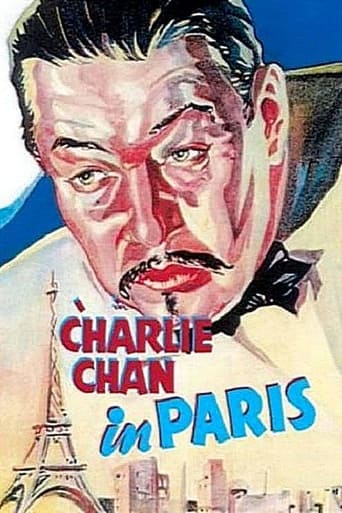

Really Surprised!
... View MoreIn other words,this film is a surreal ride.
... View MoreBlending excellent reporting and strong storytelling, this is a disturbing film truly stranger than fiction
... View MoreThe best films of this genre always show a path and provide a takeaway for being a better person.
... View MoreA reviewer wrote this: "Chan films, particularly those starring Oland, often use the device of allowing other characters to show vulgar racism toward Chan--and Chan often encourages such dismissiveness to his own ends; underestimation of Chan's talents often delivers the killer into the detective's hand. At times, however, the device has an unfortunate tone, and that occurs here, particularly in an early scene which presents Chan speaking in pidgin and then joining others in their laughter at the "joke." This sort of patronization would be soon dropped from the series, but it is significantly offensive when it occurs." Which, of course, couldn't be more wrong. Charlie embarrasses the drunken oaf who speaks the pidgin by answering in perfect English, and then twists the knife by finishing in the foolish pidgin. This scene is another example of how Fox went out of their way to point out the ignorance of those bigots who doubt Charlie's intelligence and dignity. I'm sure the message came through perfectly clear to the audience at the time.
... View MoreCharlie Chan in Paris is the second Warner Oland entry I've seen, the first was Charlie Chan at the Opera some twenty years before. The movie seemed a bit slow going at first but as the picture went on that pace seemed to work in its favor. Charlie goes to the French city, ostensibly on vacation, to visit a son of a banker friend and with his fiancée and another couple whose male part likes to draw pictures of people he knows, they go to a nightclub where an apache dancer, actually an assistant of Chan's named Nardi, gets murdered. Another one occurs later on. This film is notable as Keye Luke's first appearance as Chan's number one son Lee, here seen quite helpful in the case. Worth seeing for mystery fans, especially those who like '30-type programmers.
... View More"Charlie Chan in Paris" (Fox, 1935), directed by Lewis Seiler, the seventh installment to the long running and extremely popular 'Charlie Chan' mysteries starring Warner Oland, is an immediate sequel to "Charlie Chan in London" (1934), in which the story opens with the Oriental sleuth arriving in Paris following his latest case in London. What makes this particular episode special, other than the near perfect Paris backdrop sets and interesting suspense buildup near the conclusion, is the introduction of Keye Luke playing Charlie Chan's Number One Son, Lee. The chemistry between Oland and Luke worked out so well that Luke became a regular, thus, setting the pattern to the future installments that has made the series based on Earl Derr Bigger's created character so successful. Following the montage of stock footage of Paris, the story immediately gets underway as Charlie Chan (Warner Oland), getting off the airplane where he is set to visit his friend, Victor DeCartier (Thomas Beck). While at the airport, Charlie comes across a crippled beggar, and after boarding a taxi, a rock crashing through the window that nearly misses him is picked up by Charlie with a note attached reading, "The purpose of your visit is known. If you place the least value of your life, leave France tonight. This is your only warning." Of course Charlie is not easily frightened. Having met other characters, including Max Corday (Erik Rhodes), Yvette Lamartine (Mary Brian) and Renee Jacquard (Ruth Peterson), Charlie is entertained at a café where he witnesses the Apache dance, where Naldi (Dorothy Appleby), a woman working as a dancer, actually an undercover agent, is murdered. While attempting to keep his appointment at Le Singe Bleu, Charlie encounters the mysterious beggar again. The beggar becomes the key element to the mystery, leading to more murders. Aside from his involvement with Yvette, accused of murdering her blackmailer, Albert DeFresno (John Miljan), Charlie encounters an intruder in his hotel room only to find him to be his son, Lee (Keye Luke), taking time away from college to visit and afterwards assist his father in solving his latest caper.Featured in the supporting cast are: Minor Watson as Mr. Renaud; Henry Kolker as Monsieur LaMartine; John Qualen as Concierge; Murray Kinnell as Henri LaTouche; and Perry Ivins as Bedell. For his introduction to the series, Keye Luke's Lee addresses his father as "Dad," although he does call him "Pop" on a couple of occasions, though "Pop" would be the standard name for his father. As the series progressed, the Lee character changed from a serious-minded son to comic relief. Close to being virtually forgotten today, "Charlie Chan in Paris" is best known as being a lost entry in the series with a print to actually be discovered in the 1970s, while earlier episodes, "Charlie Chan Carries On" (1931), "Charlie Chan's Chance" (1932), "Charlie Chan's Greatest Case" (1933) and "Charlie Chan's Courage" (1934), all featuring Oland, continue to be among the missing links. Thanks to its discovery, "Charlie Chan in Paris" has become a welcome addition to the television markets, and at long last, introduced to television, in the New York City area anyway, on August 12, 1978, becoming the final installment to the eight-week television series, titled "Lost and Found" (1978) hosted by Richard Schickel on WNET, Channel 13. "Charlie Chan in Paris" was also the only sound movie to the list of formerly lost silent movie titles presented. For the "Chan" segment, Schickel did go on to mention in his discussion about Keye Luke's performance as Chan's son to be actually a one-time commitment resulting becoming an addition to the series. In later years, "Charlie Chan in Paris" became one of several Chan titles to be distributed on video cassette, as well as being presented on American Movie Classics from 1989 to 1990, and seven years later, was resurrected on AMC from 1997 to 1998. With Warner Oland as one of the more notable Charlie Chan portrayals, his venture in Paris ranks one of the better entries and worthy screen entertainment for any mystery lover or follower to the 'Charlie Chan' mysteries. Next installment: "Charlie Chan in Egypt" (1935), with Warner Oland, but without Keye Luke. (**1/2)
... View MoreExcellent mystery with Warner Oland on trail of bond forgers who would undermine the Banque Lamartine. Aided by Lee Chan (Key Luke), Chan methodically unravels fraud and murder and ducks an attempt on his life. As with other entries in this series, the viewer cannot figure out the solution because key evidence is only revealed at the end. Chan knows more than the police and the viewer. If you know this and just sit back and enjoy, you will have a pleasant time. Of note is a dance apache done by Nardi at the Cafe du Singe Blue -- apache signifying a member of the Paris underground and not an American Indian tribe. Racial slurs grate us today but reflect the times. Lots of clues but as Chan says, "must turn up many stones to get to hiding place of snake." Recommended.
... View More